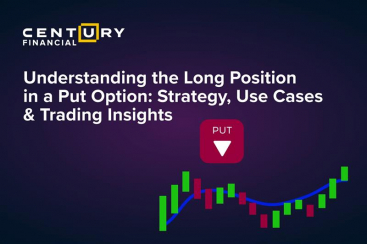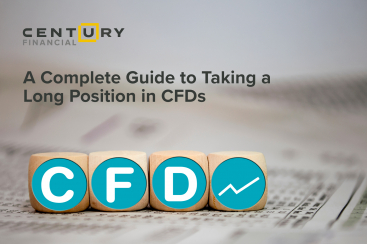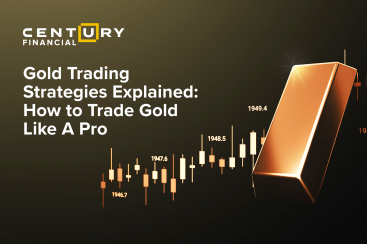Friday, September 30, 2022
Understanding Investor Behaviour to becoming a better investor
By Century Financial in 'Blog'


The investor's chief problem—and even his worst enemy—is likely to be himself. – Benjamin Graham
Nothing stands truer when it comes to most investors. During the investment process, most investors are likely to face a variety of emotions, like
.jpg)
Standard economic theory is based on the fact that individuals make investments in a rational manner. However, the simple truth is that humans often act irrationally, especially regarding their investments.
Yearly, Dalbar, a financial-service research firm, releases a study, "Quantitative Analysis of Investor Behavior". In its 2020 study, it stated investors continued to fail in achieving returns that beat or even matched the broader market indices. What's more, it found that average investors earned 5.35% below the S&P 500 return.
From gathering information, researching, picking a stock, holding and selling investments, there is a stack of psychological factors at play. But to become impartial investors, it is imperative to be aware of behavioral biases.
.jpg)
So why do investors behave irrationally?
In a study, 80% of individual investors were more inertial than logical. This behavior was also seen among institutional investors, where 30% are likely to behave logically when it comes to investment. But why?
Well, cognitive psychologists have cited several reasons for this behavior, like the human mind's limitation in processing information and the fear of missing out. Their studies have recognized the ways human makes decisions based on their emotions and biases. In fact, economic sociologists have recently taken into account the social and cultural forces that can play in investment decisions.
The simple truth is that we already have strong biases ingrained within our psyche. They may serve us well in our daily lives, but when it comes to investing, they can have an adverse effect.
Let's learn more about some of the types of investors.
Investor Behavior #1 – Fear of Regret
This theory deals with people's emotional reactions when they realize they have made an investment error. Here an investor is faced with the possibility of selling stock but is emotionally attached to the price at what it was purchased, leading them not to sell the stock, either because they are embarrassed or do not want to face the reality that they made a loss. It also holds true for those who learn a stock they thought of purchasing is now increasing in value. To avoid this, investors decide to buy stocks that others are buying, with the rationale being that "everyone else is."

Investor Behavior #2 –Mental Accounting
As humans, we are prone to create mental compartments according to particular events. Sadly, the differences between these compartments are more likely to affect our behavior than the event. To cite an example, an investor who made monstrous gains on a stock during a bullish market run doesn't want to sell the stock as it will increase again, even when the market is down.
Investor Behavior #3 – Prospect Theory
Well, it's common for investors to prefer a guaranteed investment return to an uncertain one. It's a reasonable consideration. However, the problem is when investors focus more on the prospect of a loss than on being happy with the profits they have earned. An investment consultant is likely to get more calls when they have made a loss. After all, a loss will always look bigger. It is why investors hold on to stocks and take risks to avoid losses than making profits.

Investor Behavior #4 - Over- and Under-Reacting
Most investors are optimistic when the market goes up, believing the market will continue on the same trajectory. But are pessimistic when the market drops. What investors don't realize is that by ignoring historical data and focusing on recent events, they impact the price of stocks beyond their intrinsic values. In extreme cases, the market event could lead to panic and crashes in the stock market.
There are, of course, more behaviours like anchoring, familiarity bias, overconfidence and more. With a financial investment firm, behavioural finance can help them understand their client and develop strategies for making investment mistakes. That is why it is imperative for a client to have a financial consultancy as they have systems in place for portfolio construction. More importantly, they know how to communicate with their clients in a meaningful and effective manner.
The simple truth is that investors are their own worst enemies, seeking to guess the market. The best thing for an investor is to sit down with their investment consultant to implement a well throughout strategy and, more importantly, sticking with it.
This marketing and educational content has been created by Century Financial Consultancy LLC (“Century”) for general information only. It does not constitute investment, legal, tax, or other professional advice, nor does it constitute a recommendation, offer, or solicitation to buy or sell any financial instrument. The material does not take into account your investment objectives, financial situation, or particular needs.
The opinions expressed by the hosts, speakers, or guests are their own and may change without notice. Information is based on sources we consider to be reliable; however, Century does not guarantee its accuracy, completeness, or timeliness and accepts no liability for any loss arising from reliance on this content.
Trading and investing involve significant risk, and losses may exceed initial deposits. Past performance is not indicative of future results. CFDs and other leveraged products are complex instruments that may not be suitable for all investors. Please ensure you understand how these products work, the associated risks, and seek independent professional advice if necessary.
Century is licensed and regulated by the UAE Capital Market Authority (CMA) under License Nos. 20200000028 and 301044.
Please refer to the full risk disclosure mentioned on our website.









.png)
.png)
.png)
.png)


